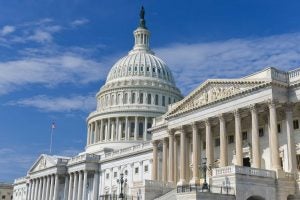Congress is back in session, but talks to adopt a new farm bill before the deadline at the end of September aren’t promising, with many, including Senate Majority Leader Mitch McConnell, whose health is being questioned recently, believing that the farm bill renegotiation will be delayed until the end of the year and an extension for the current one will be most likely put in place. Throw in a possibility of a government shutdown, and things are beginning to feel a little uncertain.
If a new bill isn’t passed before January 1, 2024, some farm policies will revert back to controls and price supports from the 1940s. Plus, trying to renew a farm bill in an election year has its own challenges, politically.
In the last part of 2022, we discussed the wishlist priorities of many agricultural organizations, which demonstrated there are always conflicting needs between parties involved in making the final bill. Additionally, there is a budget limit, on top of other issues, that prevent everyone from completely getting their way.

It has been clear since the get-go that disagreements between party lines has also been a contentious issue, and due to this, there wasn’t much hope the farm bill would be agreed upon in a timely manner. But, what are some things that might hold up a bill getting passed in the next week?
Firstly, and most importantly, is the Supplemental Nutrition Assistance Program (SNAP), formerly known as food stamps. Due to its massive presence in the percent of funding (taking up approximately 80 percent of farm bill funds), it continues to be hotly debated. Some members believe cutting the funding, and tightening restrictions on who qualifies for SNAP and for how long, is the best option following the increase in assistance used during the pandemic. The world, they believe, has changed drastically since 2020, and SNAP should reflect this.
There is a committee, the Republican Study Committee, which looks into ways to reduce spending and be more efficient with government funding. Their solution?
Convert SNAP to “a discretionary block grant to states based on rates of unemployment, poverty, and the length of time beneficiaries receive aid. Calling on states to share benefit expenses would ensure careful consideration of the federal spending requested and promote targeting aid to the most vulnerable while connecting recipients to work and lifting them out of poverty.”
With this plan, the RSC shared that states would “maintain a robust work activation program for able-bodied adults that strictly enforces time limits for how long an individual can receive benefits without meeting certain work requirements.”
Rep. Dusty Johnson (R-S.D.) also introduced a bill called the America Works Act 2023, which discusses a similar narrative to amend the Food and Nutrition Act of 2008 to standardize work requirements for able-bodied adults enrolled in the Supplemental Nutrition Assistance Program.
The arguments come from the belief that individual states abuse this program, utilizing funds even when jobs are readily available.
But, others wholeheartedly disagree with cutting any spending on the SNAP topic, arguing that inflation and an uncertain economy has added more need for assistance and don’t agree with bills such as Johnson’s.

Ty Jones Cox, Vice President of Food Assistance Policy at the Center on Budget and Policy Priorities, an independent, nonprofit, nonpartisan policy institute located in Washington, D.C., argued against such policy, stating, “The proposals in the Johnson legislation would put more than 10 million people, about 1 in 4 SNAP participants, at risk of losing some or all of their food assistance. This includes 6 million people who would be newly subject to the time limit and at risk of losing eligibility for SNAP, and about 4 million children who live in families that could have their SNAP benefits reduced, harming the entire household. …
“House Budget Committee Chair Jodey Arrington has similarly called for stricter work requirements in SNAP, and Senator John Kennedy introduced an even harsher bill in the Senate. In addition, budget plans put forward by the Republican Study Committee and by Trump-era Office of Management and Budget Director Russell Vought propose to take food assistance away through harmful work requirements while, respectively, turning SNAP into a strict block grant (often used to promote large, unspecified cuts) and radically restructuring SNAP by capping program spending.”
Suffice to say, food assistance is what could “snap” the hopes of passing a farm bill on time apart.
Climate change is another big topic, specifically with the Inflation Reduction Act of 2022. While not part of the farm bill currently, there are talks of putting it into this renewal as a way to ensure more access to funding.
“Farm bill conservation programs represent the largest source of federal funding for private landowners to preserve and steward their lands, waters, and wildlife for current and future generations; yet demand for these programs significantly outpaces supply, and competing pressures are growing,” according to The Center for American Progress, which supports the need to add it into the farm bill going forward.
This is causing quite the uproar recently, as a blog published by the U.S. Sentate Committee on Agriculture, Nutrition and Forestry discussed how there needs to be a more broad eligibility for funds, otherwise the bill is ineffective. Some suggest that the Inflation Reduction Act falls under another title within the farm bill, which could boost commodity support programs. This would require a shifting of funds, which some politicians are only supportive of if those funds do not leave the conservation title.

However, Senate Ag Chair Debbie Stabenow (D-Mich.) is one who believes there shouldn’t be any change and that the Inflation Reduction Act should be protected as is.
Finally, another big issue is the farmer safety net, which includes the Commodities, Crop Insurance and Credit Titles. Some say guidelines for commodities such as wheat, corn and dairy, need to be updated and others would like to see less major commodities covered, such as apples.
Groups such as the National Sustainable Agriculture Coalition worry that underserved and minority farmers aren’t represented well in discussions, therefore risking sectors already benefiting from these programs even further without expanding protection to small farmers.
The two main programs under the Commodities Title are the Price Loss Coverage (PLC) and the Agriculture Risk Coverage (ARC). The coalition states, “The PLC makes payments relative to reference prices fixed in legislation, whereas ARC makes payments calculated according to market conditions in the preceding five years.”
Most people in discussion agreed that there could be improvements to these programs, allowing better access to funds. The coalition reports “Witnesses asserted near unanimous support for increasing PLC statutory reference prices, as was the case at last week’s hearing in the House. With an expectation that costs of production and commodity prices are peaking and will stabilize, on average and over several years, this would all but guarantee that commodity farmers receive payments every year hence under PLC and even ARC, for which the reference price is embedded in calculations.”
However, some politicians feel that these programs are being relied upon too greatly and should only be used in the event of disaster, market disruption, and other extenuating circumstances. One of those being Sen. Chuck Grassley (R-Iowa).
“According to ERS farm data, we will see net farm income drop slightly this year. But we have to remember that in 2022, the United States set a record in farm income. Farm safety is there to help mitigate losses, not just improve producers’ bottom-lines during times of relatively high commodity prices. As [the] Ranking Member of the [Senate] Budget Committee, I care about how we are saddling future generations with our debt. …
“Rules that you must be actively engaged in farming to be eligible for commodity price support programs were intended by Congress to make sure that farm subsidies made it directly to the hands of our country’s hard-working farmers. However, a 2020 USDA rule exempts all “family farms” from the requirement — which we know USDA defines as 98 percent of all farms. Is it fair to the taxpayer and smaller farms that do not qualify that extended family members, including siblings, cousins, nephews, nieces, can all receive up to $250,000 annually from the federal government even though they have not done a tick of farm work over the last year? … Remember, this question comes from the fact that 10 percent of the biggest farmers get 70 percent of the benefits of farm programs.”
Now, take all this and throw in the need to negotiate government funding to assist with support for Ukraine, natural disasters, defense policy, the Federal Aviation Administration, and many other issues, and D.C. has quite a week ahead of them before a government shutdown by September 30.
Markie Hageman Jones majored in agribusiness at Fort Hays State University. She is actively involved in her state Cattlemen’s Association, Young Farmers chapter, and National Cattlemen’s Beef Association. Her AGDAILY.com articles can be found here.



